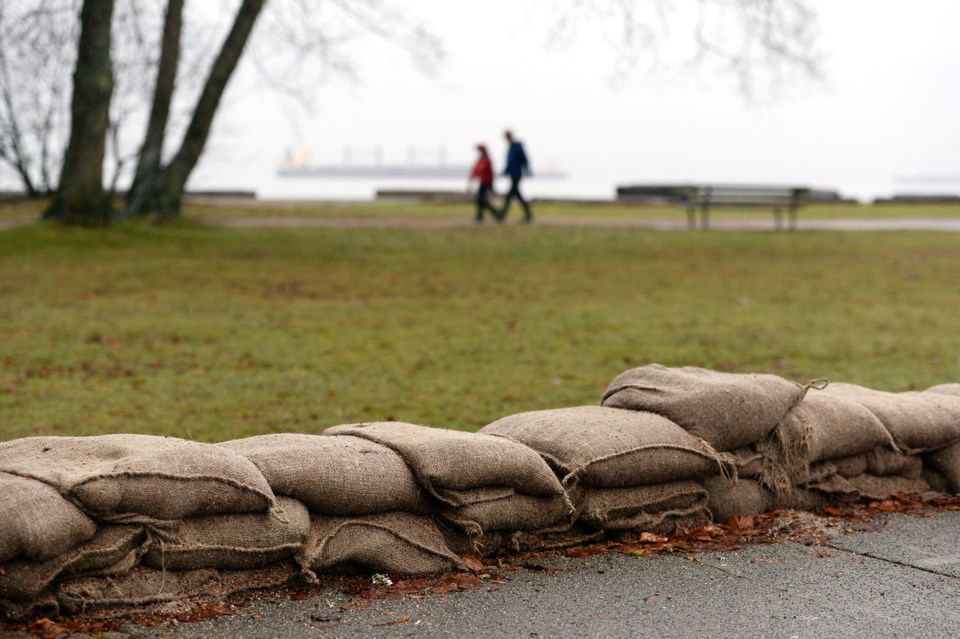Vancouverites need to be concerned about rising ocean levels but a UBC professor says we shouldn’t think the problem is so big there’s nothing we can do about it.
It’s expected that parts of Jericho Beach, Spanish Banks, False Creek and Kitsilano will see sea levels rise by a metre by the year 2100, says Stephen Sheppard. The impact will be higher — 1.2 metes — along the Fraser River delta because land there is also gradually sinking under its own weight as soft sediments compress.
For homeowners along shorelines, remedial action might include raising your house or grading your property. Cities can build dikes, tidal barriers and offshore barriers.
But everyone can help mitigate the impact of climate change by reducing their own carbon footprint.
“The less we do, the higher all these other [impacts] will go,” says Sheppard, who teaches in UBC’s urban forestry department. “But don’t freak out about it. Take action — be a leader…
“It’s a practical problem and we have to come up with practical solutions. People need to be able to look their kids in the eye and say, ‘This is what I did.’”
Since carbon emissions are a leading contributor to climate change, anything we do to reduce our carbon footprint will help, he says. This can be as simple as reducing the amount of red meat we eat or working from home one day a week to cut down on our commute. Walking to work or buying an electric car are other good places to start.
“When we’re hit by a flood or a forest fire, it’s a wake-up call and people get more aware [of the environmental impact of climate change] but often people don’t make the connection with their own carbon footprint,” Sheppard says. “We need to make the link — we are the causes.”
He applauds the City of Vancouver’s recent campaign to draw attention to rising sea levels through its king tide mapping program. When the tides were at their highest this past week, people were asked to take photos and post them to the city’s Sea Level Rise StoryMap. Not only did the initiative provide useful information to the city, it also increased people’s awareness of what will be the new normal a century from now.
“I take my hat off to the City of Vancouver for getting people engaged,” says Sheppard, adding that both Vancouver and Surrey are “pretty far advanced” in their planning.
However, he stresses again that people should not be lulled into a sense of complacency by thinking that the government will take care of everything for us. Not only will this be a very expensive solution but, once again, it focuses on addressing the physical impacts of climate change without slowing down the rate of that change. “Governments will need to put up money,” he says before returning to the theme of individual responsibility. “Cities will take care of some aspects but there’s also what citizens need to do to reduce our vulnerability.”



